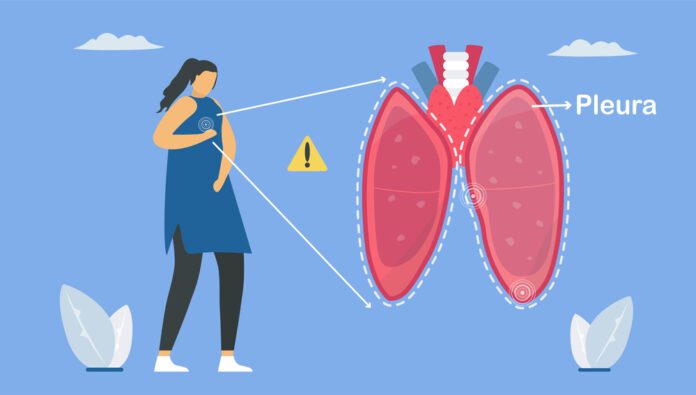Overview Of Pleural Effusion
Pleural Effusion is a buildup of fluid between the layers of tissue that line the lungs and chest cavity.
Commonly Associated With
Fluid in the chest; Fluid on the lung; Pleural fluid
Causes Of Pleural Effusion
The body produces pleural fluid in small amounts to lubricate the surfaces of the pleura. This is the thin tissue that lines the chest cavity and surrounds the lungs. Pleural effusion is an abnormal, excessive collection of this fluid.
There are two types of pleural effusion:
- Transudative pleural effusion is caused by fluid leaking into the pleural space. This is from increased pressure in the blood vessels or a low blood protein count. Heart failure is the most common cause.
- Exudative effusion is caused by blocked blood vessels or lymph vessels, inflammation, infection, lung injury, and tumors.
Risk factors of pleural effusion may include:
- Smoking and drinking alcohol
- Any previous complaint of high blood pressure
- History of any contact with asbestos
Symptoms Of Pleural Effusion
Symptoms can include any of the following:
- Chest pain, usually a sharp pain that is worse with cough or deep breaths
- Cough
- Fever and chills
- Hiccups
- Rapid breathing
- Shortness of breath
- Sometimes there are no symptoms.
Exams & Tests
Your health care provider will examine you and ask about your symptoms. The provider will also listen to your lungs with a stethoscope and tap (percuss) your chest and upper back.
Chest CT scan or a chest x-ray may be enough for your provider to decide on treatment for pleural effusion.
Your provider may want to perform tests on the fluid. If so, a sample of fluid is removed with a needle inserted between the ribs. Tests on the fluid will be done to look for:
- Infection
- Cancer cells
- Protein levels
Blood tests that may be done include:
- Complete blood count (CBC), to check for signs of infection or anemia
- Kidney and liver function blood tests
If needed, these other tests may be done:
- Ultrasound of the heart (echocardiogram) to look for heart failure
- Ultrasound of abdomen and liver
- Urine protein testing
- Lung biopsy to look for cancer
- Passing a tube through the windpipe to check the airways for problems or cancer (bronchoscopy)
Treatment Of Pleural Effusion
The goal of treatment is to:
- Remove the fluid
- Prevent fluid from building up again
- Determine and treat the cause of the fluid buildup
- Removing the fluid (thoracentesis) may be done if there is a lot of fluid and it is causing chest pressure, shortness of breath, or a low oxygen level. Removing the fluid allows the lung to expand, making breathing easier.
The cause of the fluid buildup must also be treated:
- If it is due to heart failure, you may receive diuretics (water pills) and other medicines to treat heart failure.
- If it is due to an infection, antibiotics will be given.
- In people with cancer or infection, the effusion is often treated by using a chest tube to drain the fluid and treating its cause.
In some cases, any of the following treatments are done:
- Chemotherapy
- Placing medicine into the chest that prevents fluid from building up again after it is drained
- Radiation therapy
- Surgery



